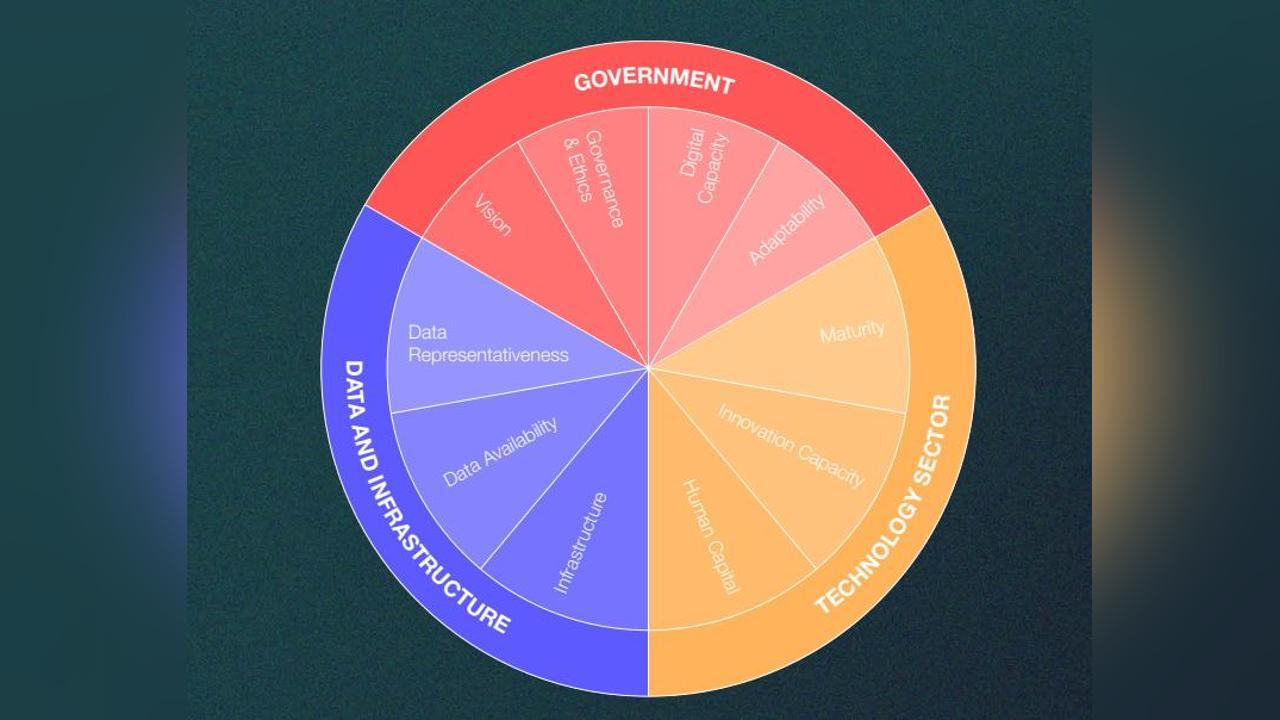Johnstone Kpilaakaa
Africa-Press – Mauritius. Despite the proliferation of artificial intelligence (AI) in Africa being on the rise with governments formulating national strategies to drive the adoption, the readiness of countries on the continent is below the global average.
“The region is overrepresented at the bottom of the ranking spectrum, with 21 out of the 25 lowest scores belonging to Sub-Saharan African countries,” according to the Government AI Readiness Index 2022 by Oxford Insights.
According to the Index, Mauritius is the African government most ready for AI. With its score of 53.38 points out of 100, the country is the 57th most ready country worldwide.
Egypt—which is 65th globally—is ranked second in Africa, ahead of South Africa, Tunisia, Morocco, Kenya, Rwanda, Seychelles, and Nigeria. Botswana ends the list of the top 10 African countries ready for AI.
Mauritius and Egypt scored high on the “government” pillar due to the existence of a national AI strategy, the development of online services, the existence of data protection and privacy laws, and the implementation of cyber security strategies.
“Mauritius approach to AI is fantastic! They have a clear strategy as to what they want to achieve.
They are also bringing the private sector and academia with them. They have a council with all of these sectors on them,” says Richard Stirling, Oxford Insights CEO.
“They are investing in the skills and they are thinking about how that can be transferred back into the industry. That’s amazing and that’s the perfect playbook. ”
South Africa, Tunisia and Morocco, Kenya, Seychelles, Botswana, and Nigeria scored highest in the “data & infrastructure” pillar, which includes, among other things, the state of telecommunications infrastructure, the number of cloud service providers computing, the quality of broadband internet access, the cost of accessing the internet and the availability of open government data.
While broadband coverage has increased in recent years, the majority of people in the region still lack access to mobile internet, due in part to high device and data costs. This is an obvious barrier to AI readiness in the region.
However, no African country scored well (50 points or more out of 100) in the “technology sector” pillar, which includes criteria such as the number of unicorns, government spending on software, the number of STEM (science, technology, engineering, and mathematics) graduates, spending on research and development, the level of digital skills, and the quality of higher education in engineering and technology.
Generally, Sub-Saharan scored 29.38 points in the average score. Countries in Africa had 38.59; both are below the global average score of 44.61 points. Major AI policy developments in Africa
According to Wendy Trott, a regional policy expert at Oxford Insights, countries in Sub-Saharan Africa are taking “crucial enabling steps” to push out data protection which is relevant for AI proliferation.
In June, the Nigerian president, Bola Tinubu assented to the Nigeria Data Protection Act 2023. The law will establish a new data protection body as well as a regulatory framework for data protection in the country.
Last year, the African Union’s Executive Council endorsed a Data Policy Framework to provide a regional framework that includes the “promotion of research, development, and innovation in various data-based areas, including big data analytics, artificial intelligence, quantum computing, and blockchain”.
“The African Union (AU) is also playing an influential role as a multilateral forum for collaboration and a potential generator of model legislation on AI and data protection,” according to the report.
“The AU has a working group on AI that is in the process of consulting with experts on a regional AI strategy, and the AU recently worked with Smart Africa to publish the AI for Africa Blueprint, which outlines the opportunities and challenges of AI in the region as well as proposing key principles and pillars for inclusion in any regional AI strategy.
” However, Trott said that “data protection authorities in most countries are not given the necessary resources to enforce these laws. There is also a lack of comprehensive follow-up regulation regarding these laws as well as a lack of regulation on the specific risks of AI”.
https://www.benjamindada.com/nigeria-ranks/
For More News And Analysis About Mauritius Follow Africa-Press







